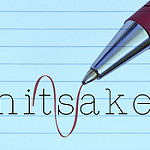At the beginning of 2015, I implemented new submissions guidelines. Instead of reading queries and then requesting sample pages, I now request that authors include the first ten pages of their manuscript along with their query letters.
What a difference! Instead of reading only 45 full manuscripts (like I did in 2014), I read 87 full manuscripts in 2015, plus 129 sample pages, and although many of these projects weren’t right for me, they did end up being right for another agent.
Now, having tried this new submissions process for a year, I can definitely identify some pros and cons.
PRO: I’m guessing writers probably love it. It gives them a chance to wow me with some opening pages, whereas before, if they didn’t perfectly nail the query letter, they might have been out of luck.
CON: Sometimes it takes me weeks longer to respond to queries than I would like. If I know I have to read some pages with it, I can’t just breeze in and get it done in 30 minutes. I need at least an hour to read the sample pages attached.
PRO: I’ve learned that some writers can nail the query letter, but their actual pages are not quite ready for an agent to read. And I can decipher this pretty quickly. This allows me to ask for full manuscripts of novels that are ready.
CON: It’s more pressure for the writer to really nail those opening pages.
PRO: The number of novels I read all the way to the end went up in 2015. It’s pretty rare for an agent to read an entire manuscript if they know early on that the project isn’t for them. I actually read many more novels to the conclusion before making a decision about offering representation.
CON: Man, I was a bit slow in getting back to some writers. I had several manuscripts for an embarrassingly long period of time.
INTERESTING TIDBIT: When I do ask for a full, I almost always make my decision on whether it’s right for me within the first 60 pages.










